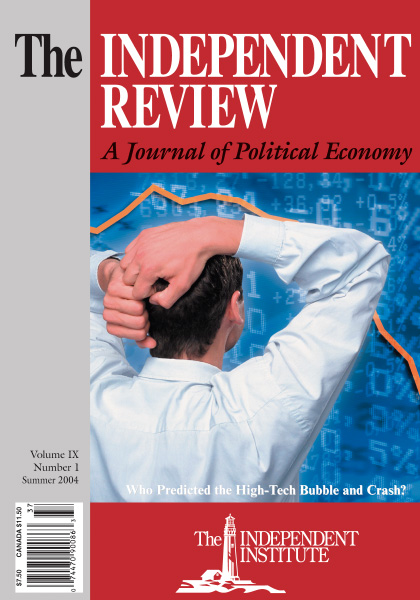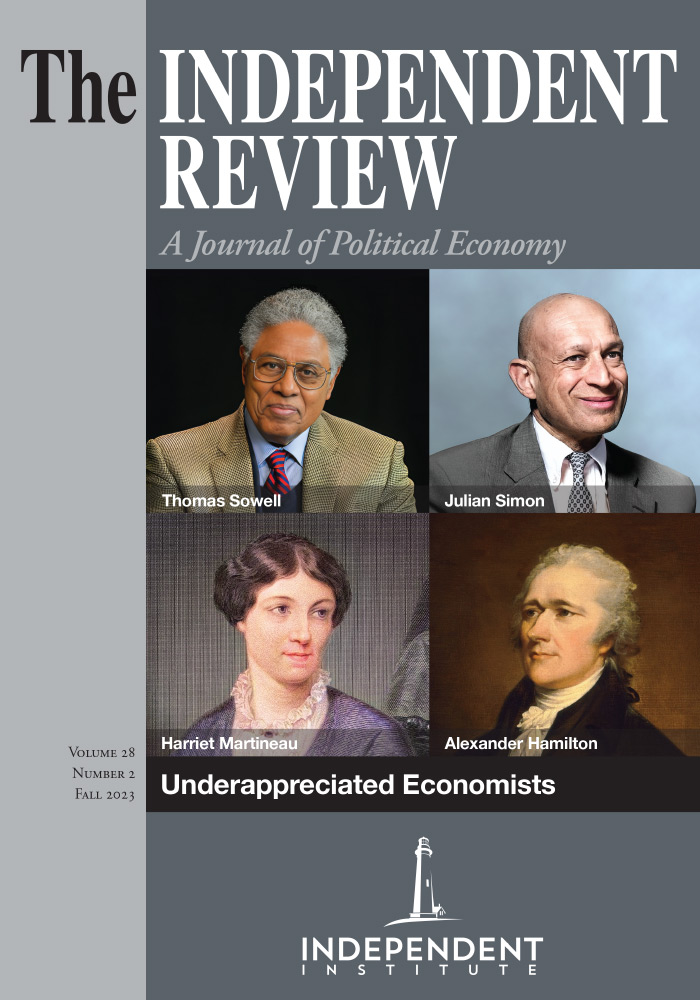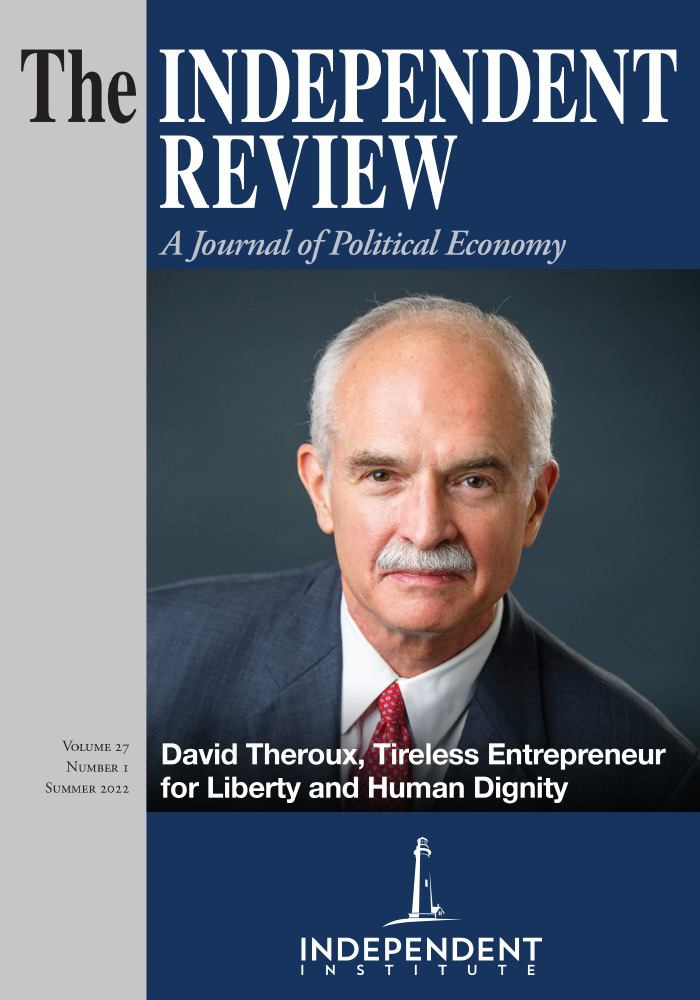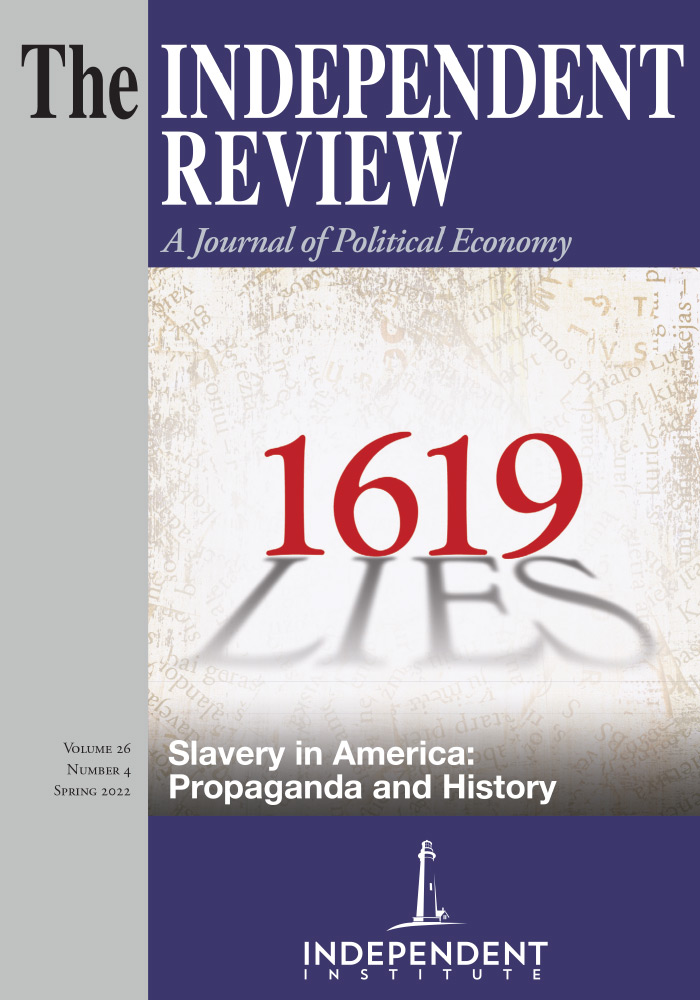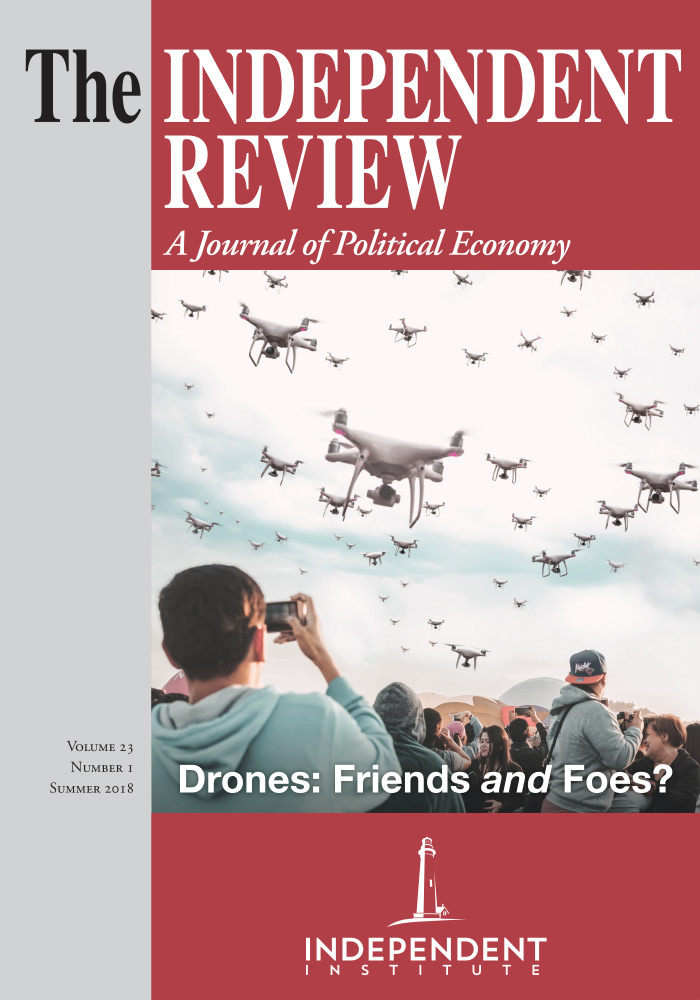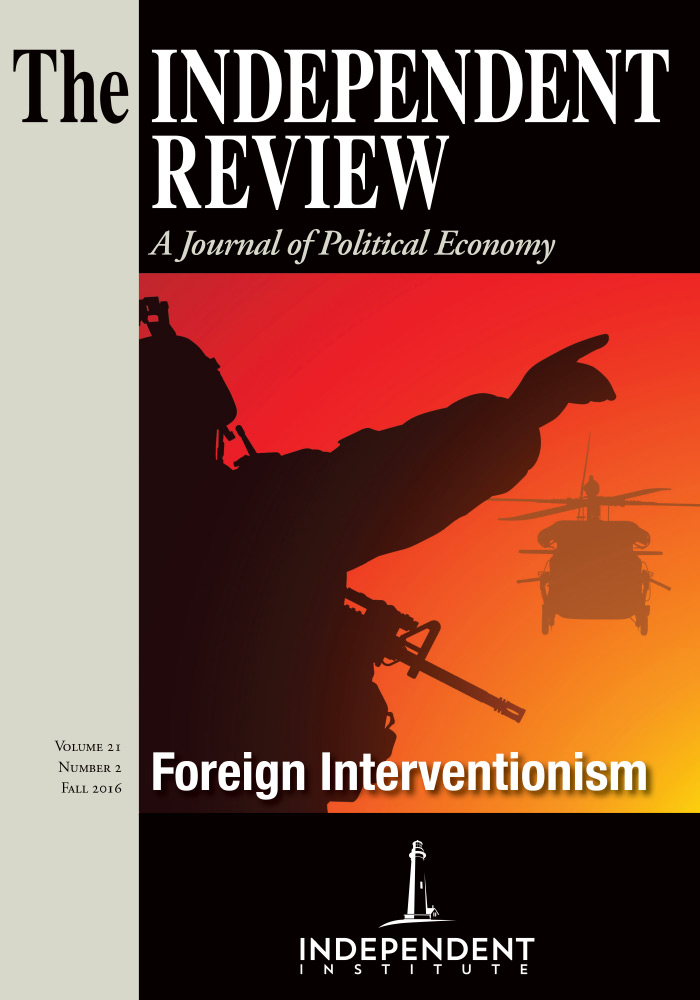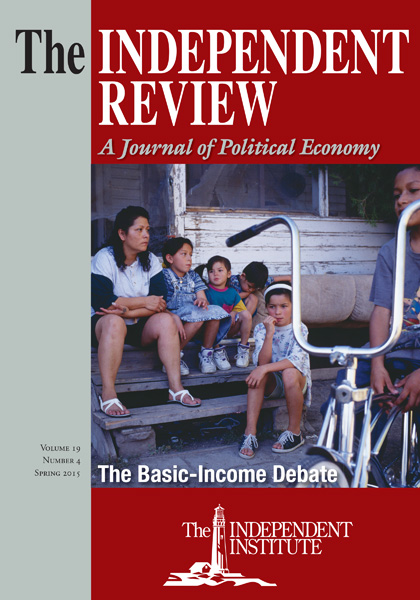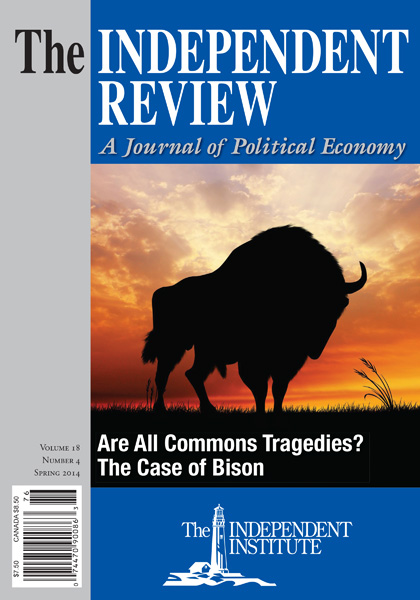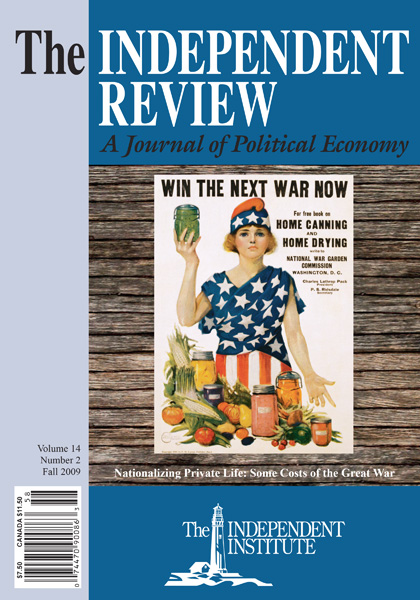Much of the growth of federal criminal procedures has been tied to the expanded use of RICO—the Racketeer Influenced and Corrupt Organizations Act of 1970. RICO has succeeded in blurring the lines between state and federal law enforcement and in overturning the protections inherent in the due-process guarantees of the U.S. Constitution.
Article
In the past three decades, a veritable revolution has occurred in U.S. criminal law. It has taken place for the most part at the federal level, where the number of crimes with which individuals can be charged has grown rapidly. Once there were only three named federal criminal acts: treason, piracy, and counterfeiting. Now there are thousands of federal laws and regulations, and the violation of any one of them, no matter how unintentional and harmless the transgression, can lead to years of imprisonment for the convicted person (Roberts and Stratton 2000).
Paul Rosenzweig has described the nature of the changes as follows:
To [the] fundamental changes in the nature of criminal liability one must also add significant changes in the subject matter of criminal law. At its inception, criminal law was directed at conduct that society recognized as inherently wrongful and, in some sense, immoral. These acts were wrongs in and of themselves (malum in se), such as murder, rape, and robbery. In recent times the reach of the criminal law has been expanded so that it now addresses conduct that is wrongful not because of its intrinsic nature but because it is a prohibited wrong (malum prohibitum)—that is, a wrong created by a legislative body to serve some perceived public good. These essentially regulatory crimes have come to be known as “public welfare” offenses.
Thus, today the criminal law has strayed far from its historical roots. Where once the criminal law was an exclusively moral undertaking, it now has expanded to the point that it is principally utilitarian in nature. In some instances the law now makes criminal the failure to act in conformance with some imposed legal duty. In others the law criminalizes conduct undertaken without any culpable intent. (2003, 2–3)
The growth of the federal criminal code has come in the wake of attempts by politicians and federal bureaucrats to “do something” about perceived crime rates, to stop illegal drug use by Americans, and to punish individuals who engage in “whitecollar” crime. In the process of expanding the federal role in identifying and prosecuting “criminal” behavior, however, the federal government has become a formidable conviction and imprisonment machine. Unfortunately, as Rosenzweig writes, many of the “crimes” and punishments can be described only as arbitrary, reflecting neither the seriousness of the offense nor the harm (if any) caused to other individuals.
Much of the growth of federal criminal procedures has been tied to the expanded use of the Racketeer Influenced and Corrupt Organizations Act (RICO), which Congress passed without much opposition in 1970 as the centerpiece of President Richard Nixon’s “Crime Bill.” In this article, we focus on prosecutions under RICO. In many ways, this law has turned out to be a modern-day rendition of the infamous Waltham Black Act of 1723, which, according to Follett, “originally outlawed poaching in disguise or in ‘blacked’ face, but judicial interpretations soon divorced its various provisions from their original context, leading to a list of fifty or more crimes punishable by death” (2001, 21).
Similarly, RICO has metastasized from its original intent, which was to deal more effectively with the perceived problem of organized crime. Federal prosecutors have discovered that RICO is a powerful weapon that can be wielded against most business owners, should the feds choose to target them. Rudy Guiliani’s prosecution of Michael Milken and other Wall Street luminaries in the 1980s—the springboard from which Guiliani rose to become first the mayor of New York City and ultimately a popular public speaker collecting $75,000 per speech—involved some of the early attempts to expand criminal RICO provisions to prosecute private business figures who clearly were not mafiosi. Today, federal prosecutors use RICO routinely to win easy convictions and prison terms for individuals who in the course of business run afoul of federal regulations. For every John Gotti who is brought down by RICO, many obscure business owners and managers are also successfully prosecuted under this law.
Much has been written about the RICO statute.[1] Rather than a summary of this vast literature, we offer a view of RICO from another angle, examining how it has revolutionized federal criminal law and how it has been used—with federal judges, members of Congress, and the press acting as cheerleaders—to overturn the protections inherent in due-process guarantees of the U.S. Constitution. Overturn is not too strong a word in this regard, given that in a RICO case, those charged are treated as guilty until proven innocent.
In tracing the development of RICO, we find that the law was little more than a “bait-and-switch” statute that has had little or no effect in stopping or inhibiting the crimes—murder, rape, robbery, and so forth—that most concerned the public in 1970. Instead, RICO has enabled federal prosecutors in effect to circumvent the constitutional separation of powers between the national and the state governments. Since RICO’s passage, the once-clear jurisdictional boundaries between state and federal law enforcement have been erased as more and more individuals find themselves in the federal dock with almost no chance of acquittal.
Although the civil portions of the law have played an important part in the expansion of criminal RICO, we focus here on the criminal side. We examine the political and legal climate that existed when RICO was enacted, and we consider how federal criminal law generally differs from state law. We also point out the “derivative” nature of federal criminal statutes: many of the “crimes” in federal laws are little more than legal fictions that serve only to gain convictions and imprison individuals. Finally, we call for a repeal of the RICO statute and others like it. If law is to serve as a shield for the innocent, as William Blackstone envisioned (Roberts and Stratton 2000), then RICO cannot be tolerated.
Political Climate, “Derivative Crimes,” and RICO
The RICO statute emerged from two separate though related sources: fears of crime in general and fears of organized crime. Furthermore, the political situation in 1970 favored the enactment of such a statute.
The U.S. presidential election of 1968 was like no other in the nation’s history. In that year, Robert Kennedy, a strong contender for the Democratic nomination, and Martin Luther King Jr., an important political figure in his own right, were assassinated. The Johnson administration increased the intensity of its conduct of the Vietnam War following the Tet Offensive, and protests against the war became more passionate and violent. Then came the disastrous Democratic National Convention in Chicago, where antiwar protesters dominated the action both inside and outside the convention hall.
It is hardly surprising that in such a political climate the “law and order” issue resonated with all the viable candidates, from Kennedy to Nixon to third-party candidate George C. Wallace (White 1969). As Theodore White noted, “The two surestfire applause lines in any candidate’s speech [during the 1968 election campaign] were always his calls for ‘law-and-order’ at home and ‘peace’ in Vietnam. This is what the American people—poor and rich, white and black—wanted to hear” (1969, 189).
Besides the violence associated with political issues such as opposition to the Vietnam War, crime rates for ordinary offenses were rising. Reported murders, rapes, aggravated assaults, robberies, and burglaries, all increased rapidly, relative to population, from 1960 to 1970. Americans wanted something done about crime, and both Nixon and Congress were looking for something to allay the public’s fears. The result was, among other things, the enactment of RICO.
The idea for the acronym RICO came from the character Rico played by Edward G. Robinson in the 1930s gangster movie Little Caesar. Nixon signed the bill into law on October 15, 1970, declaring that the new law would “launch a total war against organized crime, and we will end this war” (qtd. in “Nixon” 1970). Indeed, the new law empowered federal law enforcement authorities to engage in activities that seemingly deprived defendants of due process of law as guaranteed by the Constitution. Writes Daniel Fischel:
To achieve its objective of preventing the infiltration of legitimate businesses by organized crime, RICO gave the government sweeping new powers, including the power to freeze a defendant’s assets at the time of indictment and confiscate them after conviction. Traditionally, criminal defendants are presumed to be innocent and face punishment only after conviction. RICO, by allowing the government to seize entire businesses connected even indirectly with a defendant at the time of indictment, before any proof of guilt, is a major exception to this general principle. The government is authorized, in effect, to act as prosecutor, judge, and jury in the same case. The government under RICO is also able to make it more difficult for the accused to wage a defense by, for example, seizing the funds that a defendant would have used to hire an attorney. And if a defendant is convicted, RICO provides for onerous criminal penalties. (1995, 122–23)
As noted earlier, the “crimes” under the RICO statute are essentially fictitious, created to enable federal authorities to avoid the state courts in which accused “mobsters” traditionally had been prosecuted. Because reputed “mob” figures were being acquitted in state courts—often in the face of overwhelming evidence of guilt—the government created a new set of “derivative crimes,” a class of offenses that by definition are derived from other criminal acts.
RICO (18 U.S.C. §1961 et seq.) declares it a crime to (a) use income derived from a pattern of racketeering activity to acquire an interest in an enterprise affecting interstate commerce, (b) acquire or maintain an interest in an enterprise affecting interstate commerce through a pattern of racketeering activity, (c) conduct or participate through a pattern of racketeering activity in the affairs of an enterprise affecting interstate commerce, or (d) conspire to carry out any of the foregoing actions. Conspicuously absent from RICO is any required mental state: violation of RICO does not require intent, recklessness, willfulness, or even knowledge on the part of the accused.
The statute’s focus is the phrase “through a pattern of racketeering activity.” The American Heritage Dictionary defines racketeering as “carrying on illegal business activities that involve crimes.” The legal interpretation of racketeering is not much different. Section 1961(a) defines racketeering activity as “any act or threat involving” a laundry list of various crimes as defined by other federal laws or certain acts that would be felonies under any state law. Under RICO, then, racketeering involves other crimes ranging from murder and kidnapping as defined by any state law, to bribery and mail fraud as defined by other federal laws. In legal terminology, these underlying crimes are referred to as the “predicate acts” required by the RICO statute. The statute defines a pattern of racketeering activity to mean “two acts of racketeering activity” committed within ten years of each other.
The RICO statute defines an enterprise as “includ[ing] any individual, partnership, corporation, association, or other legal entity, and any union or group of individuals associated in fact although not a legal entity.” The Supreme Court has held that enterprise can refer to wholly illegitimate endeavors as well as to legitimate ones. (Hence, the stated goal of RICO—to prosecute the infiltration of legitimate businesses by organized crime—has been broadened into prosecution of criminal endeavors as such.)
Thus, under RICO, it is a crime to (a) use income derived from the commission of at least two “acts or threats” involving any of the crimes listed in the statute to acquire an interest in any group of individuals associated in fact affecting interstate commerce; (b) acquire or maintain an interest in any group of individuals associated in fact affecting interstate commerce, through at least two “acts or threats” involving any of the crimes listed in the statute; (c) conduct or participate, through at least two “acts or threats” involving any of the crimes listed in the statute, in any group of individuals associated in fact affecting interstate commerce; or (d) conspire to take any of the foregoing actions.
Section 1962(c) is the most frequently utilized substantive section of criminal RICO, and section 1962(d) (conspiracy) is practically ubiquitous in RICO indictments. What does subsection (c) really prohibit? Violation of RICO is defined as participation in a group of individuals, associated however loosely, “through” commission of at least two other crimes. By definition, the truly wrongful acts in RICO are already criminalized under other statutes. What does RICO add to the criminal code by making it a crime to associate with others “through” commission of crimes? The lack of a satisfactory answer to this question highlights the problematic implications of the fact that RICO is a highly derivative criminal statute. Assuming for the moment that the crimes listed in the RICO statute are themselves properly characterized as crimes, nothing is gained by making it a new and separate crime to associate with others (“conduct or participate in an enterprise”) through commission of other crimes. With the added fact that many of the crimes listed in the RICO statute are themselves derivative crimes, RICO stands out as a highly derivative criminal statute with many illiberal implications.
In reality, RICO acts as an arbitrary penalty enhancer and prosecutorial bargaining tool. A violation of RICO is a crime of convenience—for prosecutors, that is. What defendant, charged with a predicate act carrying a potential sentence of a few years, would refuse to bargain with a prosecutor who says, “I’ll take the RICO charge with its mandatory twenty-year sentence off the table if you plead guilty to the predicate offense”? If this tactical weapon fails, a prosecutor faced with a resolute defendant determined to roll the dice at trial can still rest easy, knowing that RICO has stockpiled new procedural weapons in the prosecutor’s war chest. For example, RICO allows the government join into a single prosecution widely diverse defendants and crimes that, absent RICO, would be too disjointed to be allowed in the same trial under the rules of evidence and criminal procedure.
Owing to the highly derivative character of RICO offenses, a prosecutor has options when deciding what charges to seek in an indictment. There are few constraints on a prosecutor’s discretion to include a RICO charge along with others. Given the formidable sentences RICO threatens and the relatively weak evidence needed to prove that a defendant associated with a group of individuals who committed other crimes, prosecutors have much to gain by including a RICO charge. Such abuse of prosecutorial discretion aids politically motivated or vindictive prosecutions and produces concomitant suffering and injustice for the victimized defendants. Moreover, such abuse of prosecutorial discretion is virtually irremediable because of the legal doctrine of absolute prosecutorial immunity, which bars civil suits for damages against prosecutors.
According to Roberts and Stratton (2000), federal criminal statutes today number more than three thousand. In addition, more than ten thousand federal regulations have the same legal force, thus widening the net in which federal prosecutors can catch ordinary citizens. The proliferation of derivative crimes, in combination with all these laws and regulations, has produced a prosecutor’s paradise.
Under RICO, individuals who engage in what prosecutors allege to be extortion, illegal gambling operations, and the like are not charged with those specific crimes, but rather are accused of racketeering, which is a derivative catch-all term. Because RICO cases are tried in federal courts, U.S. attorneys do not have to prove to juries and judges that the accused engaged in the aforementioned crimes (which as a rule are violations of state criminal law); they must show only that it appears the defendants carried on those activities. Moreover, for a RICO conviction, the prosecutor must meet only the civil standard of “preponderance of the evidence,” not the higher standard of “guilt beyond a reasonable doubt” that historically has been required for criminal conviction.
The highly derivative nature of RICO offenses is further exposed by examination of section 1962(d)—conspiracy to violate the other sections of the RICO Act. For example, with respect to subsection (c), violation of subsection (d) means conspiracy to conduct or participate, through at least two “acts or threats” involving any of the crimes listed in the statute, in any group of individuals associated in fact affecting interstate commerce. Now the crime amounts to an agreement (without any overt act) to participate in any loosely defined association of people through the commission of two or more other crimes.
RICO’s Expansive Vagueness
Because the RICO Act ostensibly was aimed at “organized crime,” it was perceived as targeting certain ethnic groups. Indeed, some Italian American advocacy groups protested the law. However, as Herbert L. Packer wrote, prophetically as it turns out: “With the exception of The New York Times and the Washington Post, the press and television have paid little attention to this legislation and the general public remains unaware of the dangers inherent in legislation which reduces the constitutional protection of persons accused of crime and relaxes the restraints on prosecutors, not just with respect to so-called organized crime but with respect to everyone” (1970).
Nor was Packer the only one who perceived that the law might be more expansive than many in Congress believed at the time of its passage. According to Packer, the Association of the Bar of the City of New York also had serious misgivings, proclaiming: “The draftsmen of this bill have made changes which sweep far beyond the field of organized crime. . . . [M]any of these changes have not been adequately thought through. The bill as presently drafted frequently hits targets which were not intended and misses those which were. . . . Even more disturbing . . . is the impatience which [the bill] shows for constitutional and procedural safeguards” (1970).
Fischel points out that an original version of the RICO statute would have made it unlawful “to be a member of the Mafia, Cosa Nostra or other criminal organization” (1995, 123), but such language would have made the bill blatantly unconstitutional because it would have punished membership in an organization as opposed to certain actions. Moreover, for Congress to have targeted a specific group of individuals would have come close to making the law a bill of attainder, also prohibited by the Constitution.
Rather than naming organizations, Congress phrased the statute in language that Fischel describes as “vague” and “almost meaningless,” which, he argues, “requires prosecutors to exercise maximum caution to prevent the law from being misused in ways that Congress never intended” (1995, 123). Unfortunately, U.S. prosecutors came to recognize that the law’s very vagueness made it a splendid weapon to attack individuals and firms that presented inviting targets even though they might not have broken the law in any straightforward way. One need not be a member of the Mafia or even have Cosa Nostra ties in order to be charged with RICO violations. The only requirement is that certain violations of law or regulation occur in the patterns described in the statute. Thus did two northern Virginia business owners, men with no ties to organized crime, find themselves in the RICO dock facing possible twenty-five-year prison sentences for offenses that at one time would have made them simply defendants in a civil law suit.
Prosecution of the Interbank Group
In the summer of 1998, heavily armed agents from the Immigration and Naturalization Service (INS) raided the offices of the Interbank Group of Herndon, Virginia, which were housed in an office suite located near Dulles International Airport. Leaving the offices a shambles, the agents packed most of the records, computers, and other items of the business into fifteen waiting trucks, effectively putting the company out of business (Timmerman 2000). James O’Connor and James Geisler, founders and principle owners of the business, soon were indicted in federal court for conspiracy, immigration and visa fraud, conspiracy to commit money laundering, money laundering, income tax violations, bankruptcy fraud, and mail fraud. Furthermore, the federal prosecutor decided to bundle those charges into an alleged RICO violation, which would have devastating consequences for the two defendants.
Established in 1996, the Interbank Group took advantage of a provision of the 1990 Immigration Reform Act that permitted foreigners to invest $500,000 (in areas of high unemployment) to $1 million in businesses in the United States in return for permanent residency status. The EB-5 Program, as it is called, attracted many former INS employees, who set up firms to invest the funds coming from immigrants. As Roche and Cohn (2000) write, the early results were disappointing until after 1993, when an INS administrator ruled that an investor need put up only $125,000, the balance being provided by a note from the firm handling the investor’s visa application.
The case against Interbank was a complicated one, and for our present purposes we are not concerned with the defendants’ guilt or innocence or with the details of their case. Instead, we use this case as a window through which we can peer into a RICO prosecution to see how the government used its awesome powers to box in the defendants and ultimately to ensure that they could not mount an effective defense.
Although O’Connor and Geisler had no employment connections with the INS, their firm quickly became a major player in this market—a fact that was not lost on Interbank’s competitors or on the INS. Interbank employed a different investment strategy than did its competitors, using a bank located in the Bahamas as a vehicle to lend the difference between the $125,000 put up by the investors and the $500,000 entry requirement. (The company set up another firm, Invest in America, which operated in areas of West Virginia that had high rates of unemployment. Because the firm went bankrupt soon after the raid, the foreigners who put up the investments lost most of their money. At the trial, both the government and the press gave much publicity to the fact that investors in Interbank had lost their money, failing to note that it was the government itself that had driven the firm into bankruptcy.)
By placing the charges under the RICO umbrella, prosecutors were able to allege that Interbank was a “criminal enterprise” and thus to take advantage of the Comprehensive Crime Control Act of 1984 to freeze Interbank’s assets as well as O’Connor’s and Geisler’s personal assets. Therefore, the defendants, unable to pay for lawyers, had to rely on federal public defenders who spend most their time securing guilty pleas for individuals charged with violations of federal drug laws and have almost no experience with financial cases. (At their trials, O’Connor and Geisler represented themselves with “assistance” from their court-appointed attorneys.)
The charges revolved around two decisions by O’Connor and Geisler that prosecutors alleged to be illegal. The first was to use money that the regulations for the EB-5 Program required to be put into escrow until the immigrants’ visas were approved. (O’Connor and Geisler argued that at the time the firm was in a cash-flow crunch and that although their use of the money violated a regulation, they had no criminal intent.) The other charge stemmed from their use of a bank located in the Bahamas to lend to immigrants. (Standard practice in the industry at that time was for the firms to make a phantom loan to immigrants, with the loan forgiven after five years. O’Connor and Geisler took the loans and purchased annuities with them, with the proceeds paying off the loans after five years, thus keeping the immigrants from having a large tax bill. The prosecutors alleged that this practice constituted money laundering, and the judge agreed.) With virtually no ability to defend themselves, O’Connor and Geisler were no match for federal prosecutors, who won guilty verdicts on all counts in August 2001. U.S. District judge T. S. Ellis sentenced both men to ten years in prison (prosecutors had demanded twenty-five years), and they are currently in federal prison camps in Cumberland, Maryland, and Richmond, Virginia. Although it is difficult to know if they would have fared better had they been able to secure the legal representation of their choice, the fact remains that because of the RICO law, they could not defend themselves adequately against the government’s charges. When we consider the resources of two private individuals versus the resources of the U.S. government, it becomes clear that by ensuring that O’Connor and Geisler could not have the lawyers they wanted—and could have afforded, but for RICO’s assetforfeiture provisions—the government ultimately guaranteed that the two men would not be able to mount their best defense. Throw in the nature of the RICO charges, and we can see that the legal playing field was far tilted in the government’s favor.
Guiliani’s Use of RICO Against Financial Entrepreneurs
The Interbank prosecution did not occur in a vacuum: government prosecutors had already discovered that RICO can be applied to nearly any legal infraction or regulatory violation that involves a business enterprise. Only a little more than a decade after the RICO Act’s passage, the most famous criminal use of RICO occurred not in the prosecution of a mob figure such as John Gotti, but in Rudolph Guiliani’s Wall Street prosecutions of the 1980s. Although the criminal RICO statutes had been used even earlier against ordinary businesses with no ties to organized crime, these prosecutions became the best-known instances.[2] Writes Fischel:
Guiliani saw RICO’s amorphous language as a potent weapon to rubberhose and coerce guilty pleas and punish those who refused to cooperate. He had already pioneered the criminalization of such standardless offenses as insider trading, stock parking, and manipulation. Now the government could claim that the same underlying conduct that supposedly provided the basis for these standardless offenses also constituted a “pattern of racketeering activity” that justified a RICO prosecution. By this bootstrapping logic, Guiliani was able to drop the equivalent of a nuclear bomb on any target, at any time, no matter how trivial or harmless the underlying conduct. (1995, 123)
The best-known Wall Street cases were the prosecutions of Michael Milken, the financial entrepreneur who played a leading role in promoting the high-risk, highyield securities known as “junk bonds,” and his firm Drexel Burnham Lambert. Milken ultimately pleaded guilty to six felony counts, and his Beverly Hills investment-banking firm went bankrupt. Guiliani also destroyed Princeton Newport Trading Partners, putting the firm’s founder Jay Regan and five other officers on trial, where they were convicted of a number of RICO charges in August 1989. Appellate courts overturned these guilty verdicts in the summer of 1991, but not before Princeton Newport went out of business.
The Milken case has received a great deal of attention, and we cannot do it justice here. Fischel, however, strongly disputes the government’s contention that Milken’s guilty pleas—made under extreme duress after government prosecutors threatened to indict members of his family—proved that, in the words of Securities and Exchange Commission chairman Richard Breeden, “he stood at the center of a network of manipulation, fraud, and deceit.” Fischel writes: “Breeden’s statement could not have been more wrong. None of the six felonies that Milken pled guilty to demonstrated that he was ‘at the center of a network of manipulation, fraud, and deceit.’ Breeden would have been closer to the truth if he had said that there was still no basis for concluding Milken committed any crimes, using the common understanding of what it means to commit a crime” (1995, 165).
Fischel is not the only critic of Guiliani’s RICO prosecutions. Although Wall Street Journal news reporters such as James Stewart and Laurie Cohen served as virtual mouthpieces for Guiliani and his assistants, the editorial page staff of that same newspaper defended many of the Wall Street traders who found themselves in the government’s crosshairs. George Gilder (1989) compared Milken to the fictitious Tom Smith in R. W. Grant’s “The Incredible Bread Machine,” who goes to prison for inventing a machine that makes bread for a penny a loaf. L. Gordon Crovitz said that Guiliani’s targeting of Milken was a case in which “prosecutors indicted first, asked questions later.” He added, “As Justice Robert Jackson [warned], few things are as dangerous as a prosecutor who finds a target, then looks for crimes to pin on him” (1990).
The call to do away with RICO was not limited to the editors of the Wall Street Journal. The Los Angeles Times editorialized:
From the moment of its passage, civil libertarians and legal scholars have warned that the federal government’s Racketeer Influenced and Corrupt Organizations Act—the so-called RICO statute—is an open invitation to prosecutorial abuse. Now . . . many of those scholars, some of them former prosecutors, believe their anxieties have been realized. They argue that RICO’s widening application in an astonishing array of cases makes it imperative that Congress erase this law from the books.
We agree. A good law has several essential attributes: It is clear; it addresses itself to a specific and clearly defined form of illicit conduct; it prescribes a remedy or punishment proportionate to the damage done by the offense. Statutes that fail to meet these tests are enacted not in the cause of justice, but for the convenience of the state. RICO, in fact, is one of the latter.[3]
As noted earlier, Guiliani did not pioneer the use of criminal RICO provisions against individuals who clearly are not connected with organized crime. Even though such use of RICO was just beginning in the late 1970s, some observers already were raising questions. For example, Press, Shannon, and Ellissimmons noted that federal prosecutors were using the RICO Act against defendants who clearly were not part of any organized crime ring.
The RICO law frightens many lawyers and judges. They worry about language so loosely drawn that it lets the government sweep even smalltime, white-collar defendants and public officials into the same fit as underworld hit men. While Justice officials concede the law must be applied cautiously, they see no need to sheath their weapon. “This is a valuable tool,” says Attorney General–designate Benjamin Civiletti. “We will not shy away from using it to pursue corrupt enterprises which do not fit the laymen’s view of organized crime.” (1979, 82)
Among the private business owners prosecuted under RICO are a builder of oil platforms, a real estate developer, and a hospital administrator. Moreover, RICO has also proved to be a potent weapon in public-corruption cases. The government won convictions against five Macon, Georgia, police officers for accepting bribes to overlook state crimes and a Florida state judge accused of selling acquittals (Press, Shannon, and Ellissimmons 1979).
Conclusion
In 1998, the Pittsburgh Post-Gazette published a ten-part series dealing with misconduct by federal prosecutors. Reporter Bill Moushey, author of the series, wrote: “Hundreds of times during the past 10 years, federal agents and prosecutors have pursued justice by breaking the law. They lied, hid evidence, distorted facts, paid for perjury and set up innocent people in a relentless effort to win indictments, guilty pleas, and convictions. Rarely were these federal officials punished for their misconduct” (qtd. in Roberts and Stratton 2000, 150).
In one of the episodes Moushey investigated, Assistant U.S. Attorney Joseph B. Valder allegedly remarked to a number of people that he did not care about guilt or innocence, only about his own career advancement.[4] For a prosecutor such as Valder, the RICO law is a godsend, for it enables him to compile an impressive record of convictions with minimal effort. Of such a person, former U.S. attorney general and Supreme Court justice Robert Jackson once declared: “Any prosecutor who risks his day-to-day professional name for fair dealing to build up statistics of success has a perverted sense of practical values as well as defects of character” (qtd. in Roberts and Stratton 2000, 16).
With regard to either substantive RICO violations or conspiracy to violate RICO, the real harm (if any) arises from the commission of or the conspiracy to commit the underlying crimes. Without RICO, a defendant may still be charged with committing or conspiring to commit the underlying crime. So what does RICO add to the criminal code?
The only apparent answer is a deeply troubling one. Although the RICO Act adds nothing of value in terms of new prohibitions of truly criminal behavior, it adds powerful weapons to the prosecutors’ arsenal. Our criticism extends far beyond lodging a complaint that RICO is duplicative of other criminal prohibitions and unfair in its broad scope and discretionary application by prosecutors. RICO represents the worst the criminal justice system has to offer any citizen: the arbitrary wielding of the government’s awesome power to impose criminal sanctions. This outrageous law should be repealed at once.
End Notes
1. A typical Lexis-Nexis search turns up thousands of references to RICO, which appear in both the academic and the popular press.
2. RICO also has a civil portion, and private Wall Street firms in the early 1980s resorted to civil RICO in order to stop hostile takeovers and leveraged buyouts.
3. Cited in the editorial section of the Wall Street Journal, August 22, 1989.
4. Moushey reports that this statement attributed to Valder was part of the tangled series of lawsuits filed by plaintiff William G. Moore Jr. against Valder and other government officials (see, for example, Moore v. United States, 314 U.S. App. D.C. 348 [D.C. Cir. 2000]). According to Moushey (1998), Moore’s lawsuit alleged that Valder made those remarks in front of numerous postal employees and in front of a grand jury witness (see http://www.post-gazette.com/win/day7_1c.asp). Moore had been indicted in connection with an alleged bribery scheme after Valder threatened and badgered witnesses into testifying against Moore before a grand jury. Although Moore eventually was exonerated, his business career was ruined, and he sought civil damages against Valder for Valder’s patent abuse of prosecutorial discretion. Valder and the government claimed absolute immunity, and the federal courts upheld this claim.
References
Crovitz, L. Gordon. 1990. Milken Punishment Fits No Crime He Committed. Wall Street Journal, November 28, editorial page.
Fischel, Daniel R. 1995. Payback: The Conspiracy to Destroy Michael Milken and His Financial Revolution. New York: HarperBusinesses.
Follett, Richard R. 2001. Evangelism, Penal Theory, and the Politics of Criminal Law Reform in England, 1808–30. New York: Palgrave.
Gilder, George. 1989. A Victim of His Virtues. Wall Street Journal, April 18, editorial page.
Moushey, Bill. 1998. Win at All Costs. Pittsburgh Post-Gazette (ten-part series), November 22, 23, 24, 29, and 30; December 1, 6, 7, 8, and 13.
Nixon Signs Bill to Combat Crime. 1970. New York Times, October 16.
Packer, Herbert L. 1970. A Special Supplement: Nixon’s Crime Program and What It Means. New York Review of Books (October 22). Available at: http://www.nybooks.com/articles/10798.
Press, Aric, Elaine Shannon, and Pamela Ellissimmons. 1979. Rico the Enforcer. Newsweek (August 20): 82–83.
Roberts, Paul Craig, and Lawrence M. Stratton. 2000. The Tyranny of Good Intentions: How Prosecutors and Bureaucrats Are Trampling the Constitution in the Name of Justice. Roseville, Calif.: Prima.
Roche, Walter F., Jr., and Gary Cohn. 2000. Give Me Your Tired, Your Poor, Your Huddled Masses Yearning to Breathe Free. Baltimore Sun, February 20.
Rosenzweig, Paul. 2003. The Over-criminalization of Social and Economic Conduct. Heritage Foundation Legal Memorandum no. 7, April. Washington, D.C.: Heritage Foundation.
Timmerman, Kenneth R. 2000. INS Abuse. American Spectator (July–August): 42–48.
White, Theodore H. 1969. The Making of the President 1968. New York: Atheneum.
| Other Independent Review articles by William L. Anderson | |
| Winter 2020/21 | Same Players, Different Game: An Examination of the Commercial College Athletics Industry |
| Summer 2013 | Rents and Race: Legacies of Progressive Policies |
| Summer 1998 | The Origins of Virtue: Human Instincts and the Evolution of Cooperation |

